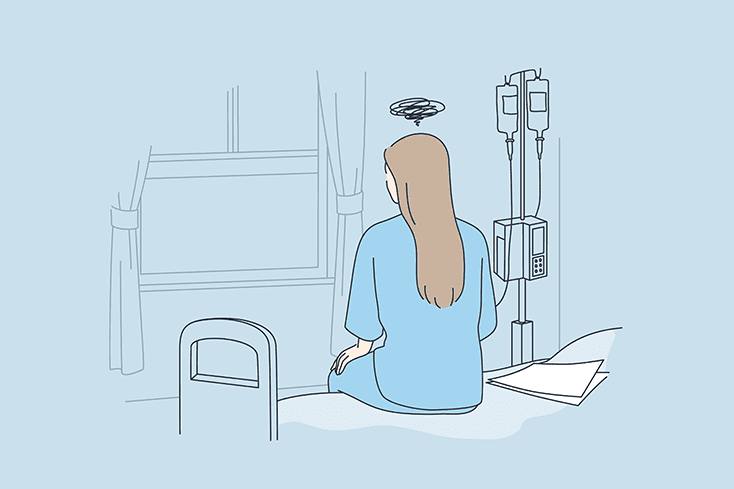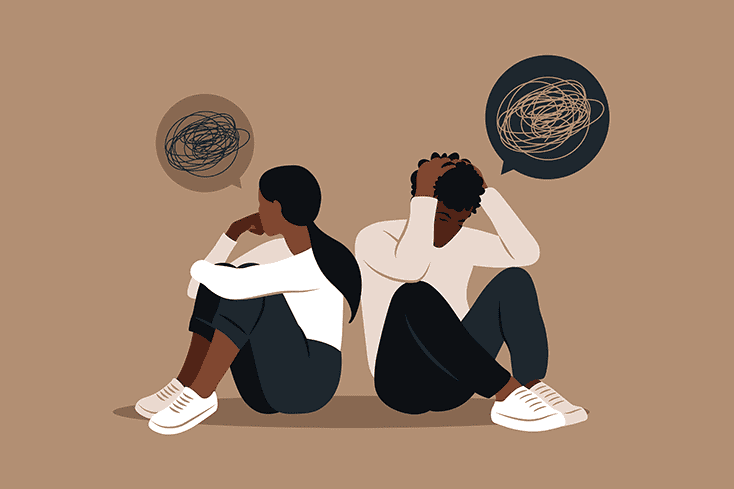當歧視始於小學 | When Discrimination Starts in Elementary School
March 20, 2019
By Leslie Cappiello, Ph.D.
https://www.nami.org/attention-deficit-hyperactivity-disorder/when-discrimination-starts-in-elementary-school/
Scroll down for the English Version ⬇️
十多年前,我接到兒子小學校長的緊急電話,說路克又「失控了」,「用鉛筆作為致命武器刺傷了他的老師」。校長告訴我警察正在趕來的路上,如果我不盡快趕到,他們就要以攻擊罪逮捕我兒子。當時我兒子才六歲。
我匆忙地告訴我的大學生們下課,然後衝向停車場,猛踩油門衝出校園。同時,我對上帝大聲吶喊,問他我的兒子何時才能得到他所需要的幫助,而不是遭受這樣的歧視和誤解。二十分鐘後,我衝進小學,來到兒子所在的房間。地上散落著書本和玩具,椅子翻倒,一張桌子被折斷成兩半,就像我的心一樣碎了。
我的兒子獨自坐在地板上,像隻受傷的動物般啜泣,仿佛陷入了無法逃脫的陷阱。一名警察站在旁邊「守衛」著他,校長和另外三名老師也在一旁看守。我撲到兒子身邊,將他緊緊抱在懷裡,低聲說:「媽媽在這裡,別擔心,一切都會好起來的。」老師們抱著胸,默默地注視著這一切。校長說必須對我兒子採取行動,因為「他太危險了,需要被安置在另一個環境中」。我能感受到他的憤怒和批判填滿了整個房間,也深刻體會到我兒子正面臨的歧視。
為兒子尋求所需的幫助,對抗偏見
這樣的生活持續了十年,漫長而充滿壓力。我的兒子被診斷出早發性躁鬱症、自閉症譜系障礙和注意力缺陷多動症(ADHD)。
多年來,我與不同的學區爭取幫助,試圖讓他們理解我兒子的情況並提供適當的支持,卻徒勞無功。同時,我兒子的學業也不斷落後。他在公立學校進進出出,嘗試了無數無效的藥物,曾短暫住過精神病院。保險公司不願支付住院治療或在家教育的費用。15歲時,他因為打了老師助理而被送進少年拘留所,這再次顯示了社會對精神健康問題的誤解和歧視。
剛滿16歲時,他宣布不再服藥。我苦苦哀求他不要這麼做,但他不聽。慢慢地,他表現出極端的攻擊性,進入了極度躁狂狀態。他拒絕去醫院,說他不需要再參加另一場「怪胎秀」。他說沒有人能幫助他。
我知道他該再次住院了。我們最近搬到了德州海岸的一個小鎮,為了離家人更近,過上節奏更慢的生活,希望這能幫助他變得更好。我還不熟悉當地的醫院,所以只能碰運氣。幸運的是,我們找對了地方。
我叫來一名精神健康副警長幫忙安撫他,把他弄進車裡。這位警長對我兒子出奇地和善。我從不知道還有這樣的警察。他把我兒子送到了醫院,這家醫院無論是字面上還是比喻上,都成了我兒子真正康復的第一站。
他在醫院住了三週。負責治療他的精神病醫生非常出色。在嘗試了幾種無效藥物後,他問我能不能試試每月注射一次的Invega Sustenna。我對這種藥一無所知,於是做了些研究,然後同意了。我們已經嘗試了所有其他方法,我想也許這種藥會是有效的那一個。事實證明確實如此。這成了讓我兒子首次能夠清晰、冷靜思考的關鍵。
轉折點
從那以後,路克能夠每週上學三天左右。這不是傳統的高中,而是一個半天制的項目,專門幫助各種在常規學校無法適應的孩子。他每週接受心理諮詢。現在他的情緒比以往任何時候都穩定,所以他能夠開始處理自己的憤怒和情緒波動問題。如果不是這最後一次的住院,這一切都不可能發生。
我非常感恩我的兒子生命中第一次有了蓬勃發展的機會。我不得不放下對他以前老師和行政人員的許多怨恨,因為他們在滿足他需求方面太不靈活。他是一個患有精神疾病的孩子。他需要的是他們的幫助和同情,而不是判斷。他需要適當的照顧和諮詢。
希望與改變
如今,我們專注於讓路克在所有他錯過的學習上趕上進度。路克已經填寫了工作申請表,希望能找到一份兼職工作。他甚至在考慮上社區大學——這些都是我們曾經無法想像會成為他未來一部分的事情。
儘管我曾害怕搬到一個新城鎮,換一個新醫生,但這個決定對我兒子的心理健康和穩定性來說是最好的。我感覺上帝回應了我的求助。我知道我和兒子還有很長的路要走,但我們已經取得了實質性的進展。第一次,我們有了希望。更重要的是,我們找到了真正理解和支持我兒子需求的人,而不是簡單地將他貼上標籤或歧視他。
這個經歷讓我意識到,我們社會在理解和接納精神健康問題方面還有很長的路要走,特別是在教育系統中。我希望通過分享我們的故事,能夠幫助更多人理解,每個孩子,無論是否有精神健康問題,都值得被公平對待和得到適當的教育機會。
萊斯莉·卡皮耶洛(Leslie Cappiello)是四個孩子的單親母親。她是一名國際文憑高中英語教師,同時也在一所社區大學任教。為了更好地理解躁鬱症並幫助兒子接受治療,她獲得了博士學位。她自行出版了一本小說《猴子的魔法》。她在2016年獲得了克勞斯·諾貝爾傑出教師獎,2017年獲得傑出教師獎。
Over a decade ago, I received a frantic call from my son’s elementary school principal that Luke was “out of control again,” and “used a pencil as a deadly weapon to jab his teacher in the arm.” He told me that the police were on their way, and if I didn’t get there soon, they were going to have him arrested for assault. My son was six years old at the time.
Hurriedly, I told my college students that class was dismissed. I raced to the car, hit the gas pedal hard and roared out of the college parking lot. At the same time, I was yelling at God asking him when my son was going to get the help he needed. Twenty long minutes later, I ran into the elementary school and into the room where my son was. There were books and toys thrown all over the floor, chairs overturned, and a table broken in two, which is how my heart felt.
My son sat alone on the floor, sobbing like a wounded animal caught in a trap with no way out. There was a police officer standing “guard” over him; the principal and three other teachers were doing the same. I flung myself to the ground next to my son, pulled him close to my chest and whispered, “Mommy’s here, don’t worry, it’ll be all right.” The teachers silently watched with arms crossed over their chests. The principal said that something had to be done about my son because “he’s simply too dangerous and needs to be put in another environment.” I could feel his anger and judgment filling the room.
Getting My Son the Help He Needed
This has been our life for 10 very long and stressful years. My son has early onset bipolar disorder, autism spectrum disorder and ADHD.
Over the years, I have fought different school districts for help to no avail, while my son fell behind academically. He has been in and out of public schools. He has tried countless medicines that haven’t worked. He’s experienced short stays in psychiatric hospitals. Insurance wouldn’t pay for residential treatment or home school. He was put in juvenile detention when he was 15 for hitting his teacher’s aid.
Right after he turned 16, he announced he wasn’t going to take his meds anymore. I begged him not to do that, but he didn’t listen. Slowly he exhibited extreme aggression and became hyper manic. He refused to go to a hospital saying that he didn’t need another “freak show.” He said that no one can help him.
I knew he was overdue for another hospital stay. We’d recently moved to a small town on the Texas coast to be closer to family and have a slower paced life in hopes that it would help him do better. I didn’t know the local hospitals yet, so it was going to be hit or miss. Thankfully, it was a hit.
I called for a mental health deputy to help calm him down and get him in the car. He was amazingly kind to my son. I never knew there was such a thing. He transported my son to the hospital, which turned out to be literally and figuratively the first real road to my son’s recovery.
He was in the hospital for three weeks. The psychiatrist helping him was outstanding. After trying a few medications that didn’t work, he asked me if they could try Invega Sustenna injection once a month. Not knowing anything about it, I did my research and said okay. We had tried everything else, I thought maybe this medicine will be the one. And it was. It has been the key to my son being able to think clearly and calmly for the first time in his life.
Turning a Corner
Since that time, Luke’s been able to attend school about three days a week. It’s not a traditional high school, but a half day program that works with all types of kids that haven’t been successful in regular school. He attends weekly counseling. He is now more stable than ever, so he can work on his anger and mood swings. All that would never have happened if he had not been placed in this last hospital.
I’m so thankful that my son is thriving for the first time in his life. I have had to let go of a lot of anger towards his former teachers and administrators for being so inflexible in attending to his needs. He was child with mental illness. He needed their help and compassion rather than their judgment. He needed proper accommodations and counseling.
Today, we are focusing on Luke gaining some ground on all the learning he never received. Luke has filled out a job application and hopes to get a part-time job. He is even thinking about community college—all things that he and I never imagined could be part of his future.
Though I was afraid to make the move to a new town and a new doctor, this decision has been the best one for my son’s mental health and stability. I feel as if God answered my cries for help. I know that my son and I have a long journey ahead of us, but we’ve made real progress. For the first time, we have hope.
Leslie Cappiello is the single mother of four children. She is an International Baccalaureate high school English teacher as well as an instructor at a community college. In order to understand bipolar more and help with her son’s treatment, she obtained a PhD. She has self-published a novel, The Magic of the Monkeys. She was the Claes Nobel Distinguished Teacher in 2016, and Outstanding Teacher in 2017.
Sign up for our Newsletter
訂閱每月簡訊獲得最新資訊
Contact Us












